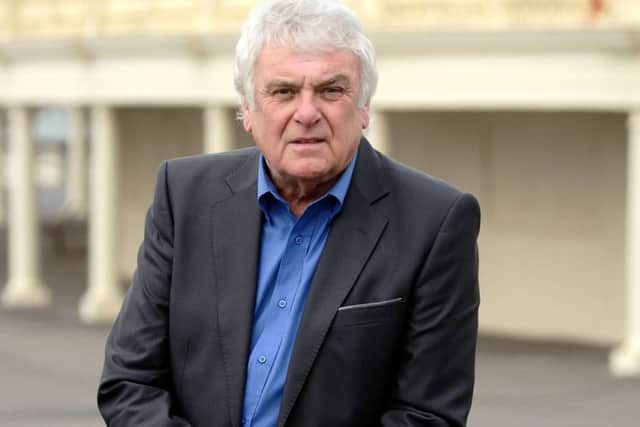Resort the target of anti-terror campaign


The publicity by the NSPCC, in various languages including Arabic, Urdu, Somali, and Bengali, aims to reach out to parents across the resort.
But the decision to pick the town as one of 14 pilot areas across England, Scotland and Wales has been called into question.
Advertisement
Hide AdAdvertisement
Hide AdSome 97 per cent of Blackool’s population is white, well above the national average of 85 per cent.


And just two per cent are Asian or Asian British, compared to a national average of eight.
The resort attracts hundreds of ethnic visitors from across the country, but none routinely visit a GP while on holiday.
Opposition leader at Blackpool Council, Coun Tony Williams, said: “Nobody wants radicalisation but we have a harmonious relationship with all different types of people and we don’t seem to have any problems with that.
Advertisement
Hide AdAdvertisement
Hide Ad“Surely they should have picked elsewhere. I think they have chosen the wrong area.


“Blackpool is not an obvious place where that sort of situation happens.”
When asked by The Gazette why Blackpool was chosen, an NSPCC spokeswoman said the charity was following guidance from the Home Office. Other pilot areas in the north of England include Manchester, Leeds, Newcastle, and Bradford.
“We have seen a wave of terrorist attacks in recent weeks and months, and both parents and children tell us how frightened they are by what is happening,” the spokesman said
Advertisement
Hide AdAdvertisement
Hide Ad“So it is vital that we are here for parents when they need our support and are able to provide them with non-judgemental advice on issues ranging from the wider terrorist threat to the dangers of radicalisation.
“Of course, the fact a young person might hold extreme or radical views is not a safeguarding issue in itself.
“But when young people are groomed for extremist purposes and encouraged to commit acts that could hurt themselves or others, then it becomes abuse.”
Last month, the charity announced that counsellors on its helpline had been trained to spot the signs of radicalisation and extremism.
Advertisement
Hide AdAdvertisement
Hide AdAnd in May, chief of schools watchdog Ofsted, Sir Michael Wilshaw, warned that thousands of children in unregistered schools — those eligible for registering as independent schools but where the proprietors have opted not to register — could be at risk of indoctrination.
But there are none in Blackpool. Warning signs of radicalisation include youngsters isolating themselves, talking as if from a script, having outbursts of anger, being disrespectful, and asking inappropriate questions.
Children who may be targeted can have low self-esteem, are members of gangs, or may be victims of bullying or discrimination, the NSPCC said, and extremists may use similar tactics to paedophiles who groom children.
The helpline number is 0808 800 5000.